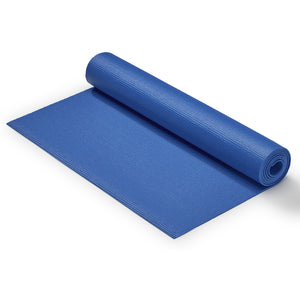As the holiday season approaches, bringing with it a whirlwind of social obligations, gift shopping, and year-end work pressures, many of us find ourselves teetering on the edge of being overwhelmed.
The relentless pace can quickly drain our mental and emotional reserves, leaving us stressed, anxious, and disconnected from what truly matters. Slowing yourself down might be the single most important thing you do this season. If you’re looking to restore balance, reduce stress, and cultivate inner peace, utilizing the life-changing practices of daily gratitude and meditation might be just the thing for you.
The Science Behind Gratitude and Meditation
It’s no secret that gratitude and meditation have a profound impact on our mental, emotional, and physical well-being. Numerous scientific studies have demonstrated how adding these simple practices to our day can shift the way we show up in the world.
Did you know that practicing gratitude daily isn’t just about feeling good— it can actually change your brain and body in remarkable ways? Research from UC Davis Health and a groundbreaking study by Emmons and McCullough (2003) demonstrates that gratitude practices slash cortisol levels (that’s your stress hormone) by 23%, boosts sleep quality by 20%, and even cuts depression symptoms by 15%. They also found that overall life satisfaction increased by 25%. [1,2]
There are also incredible physical benefits, too. A study published in Psychosomatic Medicine by Redwine et al. (2016) focused on heart failure patients and found that gratitude practices helped lower inflammatory markers and improved heart rate variability. [3] Translation? A healthier, more resilient heart. It’s proof that feeling thankful isn’t just “in your head”— it’s in your heart.
Another breakthrough study found that being grateful might not just help you live a happier life— it could help you live longer. Epel et al. (2011) explored how mindfulness and gratitude might actually slow down the process of aging. [4] Yes, you read that right. Their research showed these practices help protect telomeres, the caps on the ends of your chromosomes that act like little biological clocks. Telomeres shorten with stress and age, but mindfulness and gratitude seem to press “pause” on that process.
Gratitude has also been shown to foster significant neurological benefits– it actively rewires the brain. One study found that gratitude practices reduce activity in the amygdala, the brain's fear and stress center, while enhancing connectivity in the prefrontal cortex, which governs decision-making and emotional regulation. [5] These neural changes contribute to improved emotional control, reduced stress responses, and sharper cognitive abilities, effectively positioning gratitude as a tool for strengthening key mental faculties. [6]
Further insights from Fox et al. (2016) reveal that gratitude influences the brain’s default mode network, a critical region associated with self-reflection and emotional processing. [7] This finding underscores the dynamic nature of gratitude, suggesting it functions as an active mental exercise that enhances the brain’s capacity for introspection and emotional management.
Additionally, researchers from Harvard Medical School found that mindfulness and gratitude practices lead to increased gray matter density in regions associated with memory, learning, and emotional regulation. [8] These structural changes highlight gratitude’s ability to not only enhance psychological well-being but also physically reshape the brain, fostering greater cognitive resilience and adaptability.
Practical Implementation Tips
Practical implementation of daily gratitude involves strategic, evidence-based approaches designed to integrate appreciation into everyday life. Experts recommend starting with a structured 5-10 minute daily practice.
The key is consistency and authenticity. Successful implementation requires personalization, and adapting methods to individual preferences and lifestyles.
Critical to success is avoiding forced or superficial gratitude, instead cultivating genuine, specific reflections that resonate personally and promote meaningful psychological engagement.
1. Gratitude Journaling Technique
- Write 3-5 specific gratitude entries daily
- Focus on unique details rather than generic statements
- Allocate 5-10 minutes each evening
- Focus on moments, experiences, or people that brought you joy or comfort
2. Gratitude Meditation
- 10-minute daily mindfulness practice
- Reflect on positive experiences
- Use guided meditation apps or scripts
- Combine deep breathing with thankful thoughts. Inhale positive memories. Exhale stress and negativity.
3. Social Gratitude Expression
- Weekly gratitude letter/text/phone call to one person
- Verbal acknowledgments
- Specific, sincere appreciation
4. Gratitude Triggers
- Set daily phone reminders
- Use visual cues (gratitude jar, sticky notes)
- Link your gratitude practices to existing daily routines
- Make it part of your morning or night routine
- Be detailed: Instead of "I'm grateful for my family," try "I'm grateful for my sister's supportive text message today"
5. Mindful Appreciation
Dr. Sonja Lyubomirsky, author of The How of Happiness, emphasizes mindful appreciation techniques: [9]
- Pause and deeply reflect on positive experiences
- Express gratitude directly to people who have helped you
- Avoid taking positive aspects of life for granted
Potential Challenges and Solutions
Implementing a daily gratitude practice comes with several nuanced challenges that require strategic navigation.
Practitioners often encounter motivation fatigue, where the practice becomes mechanical and loses emotional resonance.
Emotional complexity poses another significant hurdle, particularly during periods of stress or negative mental states, where finding genuine appreciation becomes difficult.
Time constraints and cognitive overload can impede consistent implementation, making it crucial to develop efficient, low-investment interventions that can be seamlessly integrated into existing routines.
Neuropsychological research suggests that overcoming these barriers requires a multifaceted strategy involving micro-practices, adaptive tracking, technique rotation, personalized approach adaptation, guided help, and compassionate self-observation.
Gratitude and Meditation: Your Personal Reset Button
In our always-on world, meditation offers a crucial sanctuary. Instead of doom scrolling on social media, pop over to the SunnyFit App where you will find guided meditations specifically designed to combat holiday stress and cultivate mindfulness. These sessions range from quick 5-minute breathers to more immersive 20-minute journeys.
Recommended Meditations on the SunnyFit App
1. Stress Release Meditation
- Focuses on releasing tension
- Ideal for your lunch break
- Available in 5 and 10-minute versions
2. Gratitude Visualization
- Guides you through positive imagery
- Helps reframe challenging experiences
- Boosts overall emotional resilience
3. Mindful Breathing Sessions
- Perfect for beginners
- Teaches fundamental breathing techniques
- Reduces anxiety in real-time
How to Get Started
Our app makes integrating these practices seamless.
1. Download the SunnyFit App and begin your transformative journey
2. Create a free account
3. Complete a quick wellness assessment
4. Click on “Meditation” under Courses
5. Choose the amount of time you want to spend meditating
6. Enjoy!
In the app, you can track your progress and monitor your meditation and gratitude journey. You can also use the community feature to share your experiences and find support.
References
1. Rea, M. (2019, November). Gratitude. UC Davis Health. https://health.ucdavis.edu/nursing/academics/studentwellness/pdfs/BIMSON_Newsletter-November_2019.pdf.
2. Emmons, R. A., & McCullough, M. E. (2003). Counting blessings versus burdens: An experimental investigation of gratitude and subjective well-being in daily life. Journal of Personality and Social Psychology, 84(2), 377–389. https://doi.org/10.1037/0022-3514.84.2.377.
3. Redwine, L. S., Henry, B. L., Pung, M. A., Wilson, K., Chinh, K., Knight, B., Jain, S., Rutledge, T., Greenberg, B., Maisel, A., & Mills, P. J. (2016). Pilot Randomized Study of a Gratitude Journaling Intervention on Heart Rate Variability and Inflammatory Biomarkers in Patients With Stage B Heart Failure. Psychosomatic medicine, 78(6), 667–676. https://doi.org/10.1097/PSY.0000000000000316.
4. Epel, E., Daubenmier, J., Moskowitz, J. T., Folkman, S., & Blackburn, E. (2009). Can meditation slow rate of cellular aging? Cognitive stress, mindfulness, and telomeres. Annals of the New York Academy of Sciences, 1172, 34–53. https://doi.org/10.1111/j.1749-6632.2009.04414.x.
5. Kyeong, S., Kim, J., Kim, D. J., Kim, H. E., & Kim, J. J. (2017). Effects of gratitude meditation on neural network functional connectivity and brain-heart coupling. Scientific reports, 7(1), 5058. https://doi.org/10.1038/s41598-017-05520-9.
6. Wright, P. (2023, November 11). What happens in your brain when you give and practice gratitude?. Nuvance Health. https://www.nuvancehealth.org/health-tips-and-news/your-brain-when-you-give-and-practice-gratitude.
7. Moran, J. M., Kelley, W. M., & Heatherton, T. F. (2013). What Can the Organization of the Brain's Default Mode Network Tell us About Self-Knowledge?. Frontiers in human neuroscience, 7, 391. https://doi.org/10.3389/fnhum.2013.00391.
8. Powell, A. (2019, April 9). When science meets mindfulness. The Harvard Gazette. https://news.harvard.edu/gazette/story/2018/04/harvard-researchers-study-how-mindfulness-may-change-the-brain-in-depressed-patients/.
9. Mindful. (n.d.) How To Practice Gratitude. https://www.mindful.org/an-introduction-to-mindful-gratitude/#:~:text=Take%20time%20to%20notice%20what's%20around%20you,which%20can%20then%20bring%20satisfaction%20and%20happiness.



























Add Your Name & Email
Please enter your name and email to continue.We won’t display your email publicly.